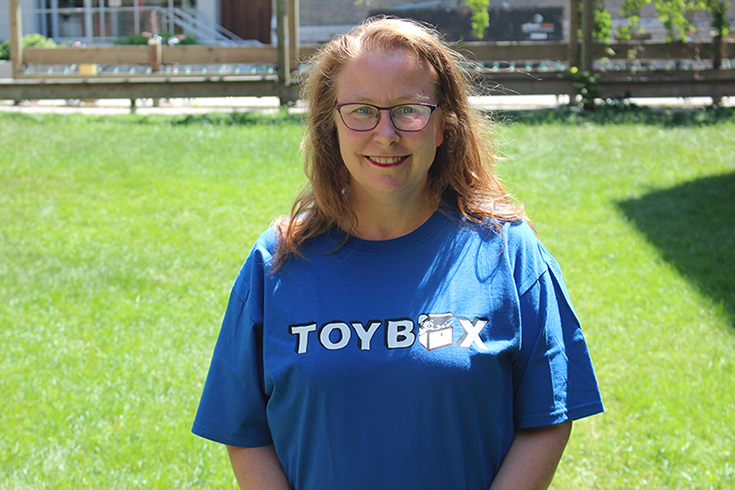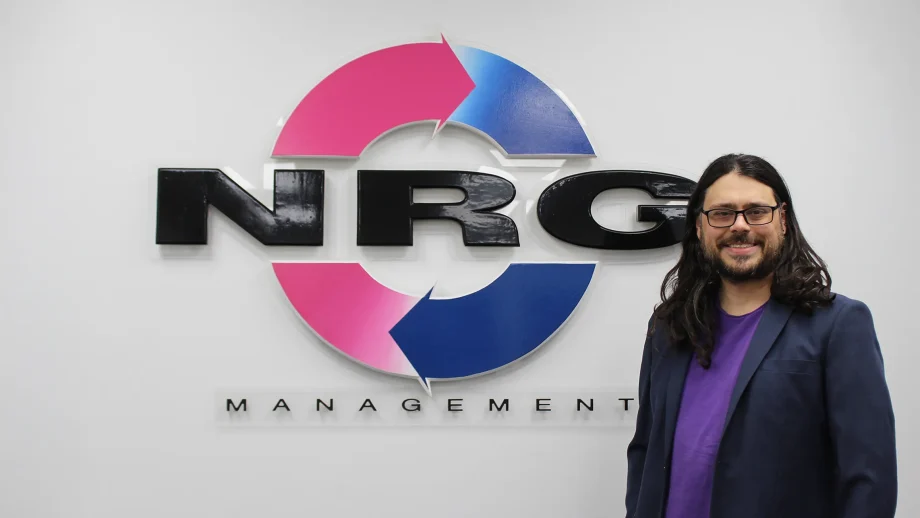A new parent support tool to advance children’s numeracy and literacy skills is being developed as an app or email reminder by a grassroots team led by The University of Winnipeg’s Sheri-Lynn Skwarchuk.
Skwarchuk, Professor in the Faculty of Education and Director of the Developmental Studies Program, was inspired to create the ToyBox app when the Government of Manitoba put out a call for projects aimed at advancing numeracy and literacy skills.
Her research interests have been focused around home numeracy and how parents and educators can help prepare children for numeracy skills before school, so it was the perfect opportunity.
“I thought about it and gathered a collaborative Manitoba team,” she explained, noting there are parents, teachers, early childhood educators, numeracy consultants and members of government contributing. “But we did not realize that there are many steps in the process.”
The basic idea of ToyBox is to provide parents with easy-to-access activities to participate in with their children. Activities are divided into three categories: literacy, numeracy, and parent wellness. The target age range for children is 2 – 8 years of age.
“Our third area is parent wellness, because if parents are feeling supported, they will find the time and energy to work on literacy and numeracy strategies with their children,” Skwarchuk added.
The team applied for Government of Manitoba advertised innovation funding in 2017 and was shortlisted in 2018, but fell just short. Over the course of the last year, the ToyBox team shifted their focus to grant writing and grassroots fundraising and support.
But besides fundraising, the team is working toward creating 365 strategies in each of the three areas. To date, they have 30 strategies in each category, and some are currently under review by other local parents to receive feedback.
“The strategies take incredible time to write,” Skwarchuk explained. “All of the strategies are evidence based — I won’t let anything pass unless it’s been vetted and has the seal of peer-reviewed research support. Each strategy also has a description for parents on why it is important.”
The scope of strategies range from flashlight reading, which makes story time extra fun by reading to your child under a blanket fort by flashlight, to talking about time and clocks, and making predictions such as how many socks are in the laundry basket.
For parents, one of the many wellness strategies available is Permission to Rest, Captain.
It reads: “Give yourself permission to rest or go to bed early. Resting does not mean being lazy. Model the resting habit for your family and plan for your down time. Do not cheat yourself out of it if something comes along. Even a 10-minute rest can create a positive outlook and energy.”
Looking forward, Skwarchuk says the plan is to continue developing strategies. To help accelerate the process, the team acquired support from UWinnipeg’s Experiential Learning Fund, so Developmental Studies students can be part of the collaborative process in a course this Fall Term.
“Members from the ToyBox team will mentor the students through discussions in the course to develop additional content,” she explained. “For one of their assignments, students will be involved in developing a strategy for each category.”
The next phase of the project involves the search for technological expertise. If the team receives funding from their grant applications, they’ll be able to share their ideas with tech innovators to get the app up and running.
Skwarchuk said that further funding will enable another phase of the project to start. Pilot testing with a broader range of families will be completed to determine the quality of content based on feedback from parents.
“Funding will determine how quickly this process will take,” she said. “We are grateful to UWinnipeg for their research support to date.”
Testing will take place in some communities and, based on feedback received, the material can be adjusted with the eventual goal of fully launching the content across Manitoba.
“What people will find unique is that the content is developed by parents for parents with reference to local experiences and culture,” she noted. “We have people representing all areas of Manitoba — that’s always been our focus.”
To help support the Toybox app, contact s.skwarchuk@uwinnipeg.ca





